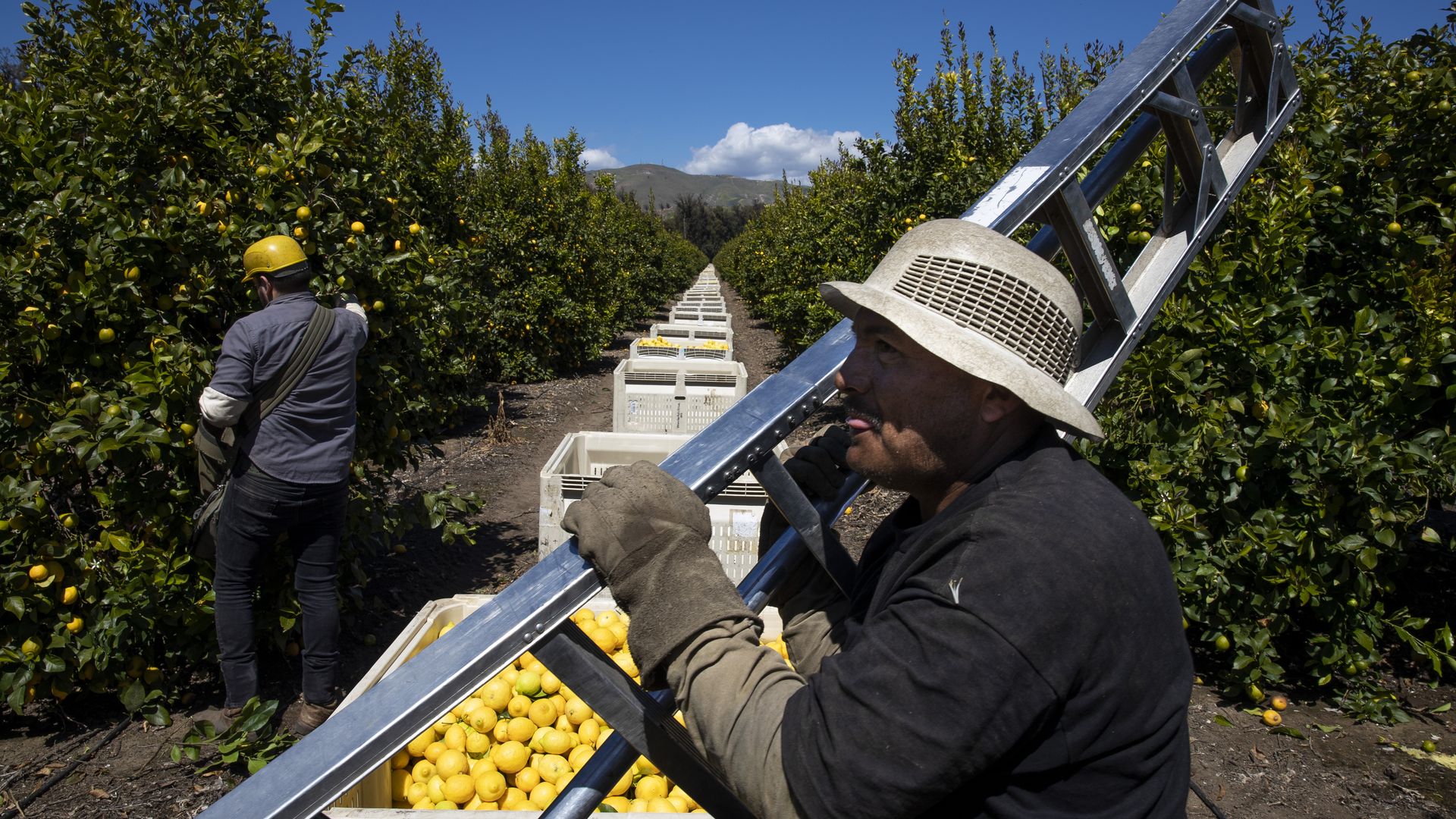Apr 7, 2020 - Health
Farmworkers risk coronavirus to keep supermarkets stocked with fresh food
Add Axios as your preferred source to
see more of our stories on Google.

Agricultural workers have become essential workers in the race to maintain Americas food supply while simultaneously staying healthy. Photo: Brent Stirton/Getty Images
